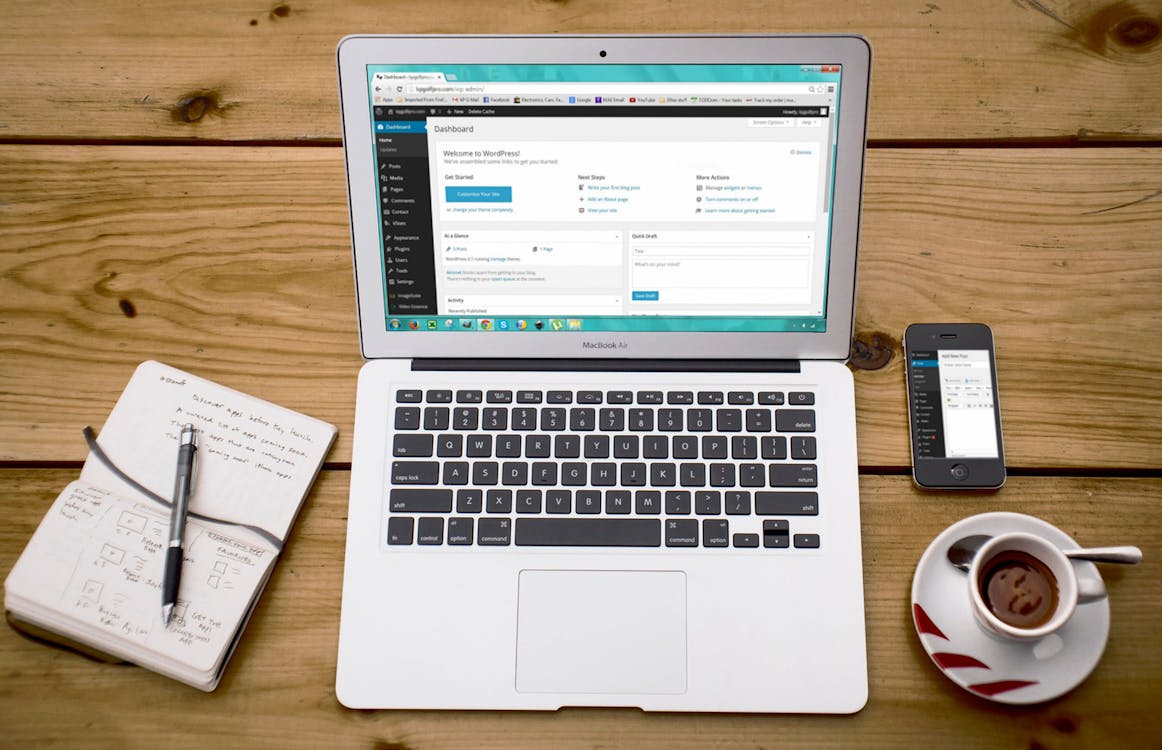When it comes to choosing a platform for your website, WordPress vs. other platforms? One of the most important decisions is using WordPress or another platform. WordPress is the most popular content management system (CMS) in the world, but there are other options available. In this blog post, we will compare WordPress to other platforms to help you make the best decision for your website.
We will discuss the following topics:
- The pros and cons of WordPress
- Other popular website platforms
- How to choose the right platform for your website
By the end of this post, you will have a better understanding of the different options available and be able to make an informed decision about which platform is right for you.
WordPress vs. other platforms

WordPress vs. Other Platforms which one to choose for your website let’s talk about it.
WordPress is a popular content management system (CMS) that powers a significant portion of websites on the internet. However, there are several other platforms available, each with its own strengths and weaknesses. Let’s compare WordPress with some other notable platforms:
WordPress vs. Wix
the first one In WordPress vs. Other Platforms is Wix. here are their deference.
WordPress
- Open-source and highly customizable.
- Extensive library of plugins and themes.
- Requires hosting and a domain name.
- Steeper learning curve for beginners who want more control.
Wix
- User-friendly drag-and-drop interface.
- All-in-one solution with hosting included.
- Limited customization compared to WordPress.
- Subscription-based pricing.
WordPress vs. Squarespace
The 2nd one In WordPress vs. Other Platforms is Squarespace. here are their differences.
WordPress
- More flexibility and customization options.
- Larger community and developer support.
- Requires separate hosting and domain registration.
- Better for larger or more complex websites.
Squarespace:
- All-in-one solution with hosting included.
- Intuitive drag-and-drop interface.
- Limited third-party plugins and extensions.
- Easier for beginners but less flexible for advanced users.
WordPress vs. Joomla
The 3rd one In WordPress vs. Other Platforms is Joomla. here are their differences.
WordPress:
- Larger user base and extensive documentation.
- User-friendly with a vast selection of themes and plugins.
- More focus on blogging and content management.
Joomla:
- Powerful and flexible for larger websites.
- Steeper learning curve than WordPress.
- Robust user permissions and content organization.
WordPress vs. Shopify
The 4th one In WordPress vs. Other Platforms is Shopify. here are their differences.
WordPress:
- Primarily a CMS but can handle e-commerce with plugins like WooCommerce.
- More flexibility for content-driven websites.
- Requires additional setup for e-commerce functionality.
Shopify:
- Dedicated e-commerce platform.
- User-friendly with built-in features for online stores.
- Monthly subscription pricing.
- Limited in flexibility for non-e-commerce features.
WordPress vs. Blogger
The 5th one In WordPress vs. Other Platforms is Blogger. here are their differences.
WordPress:
- Self-hosted and customizable.
- Extensive community and developer support.
- Suitable for various types of websites.
Blogger:
- Hosted by Google, free and easy to use.
- Limited customization compared to self-hosted solutions.
- Ideal for personal blogs but lacks advanced features.
The choice between WordPress and other platforms depends on your specific needs, technical expertise, and the type of website you want to create. WordPress is a versatile option that can accommodate a wide range of projects, but other platforms may be more suitable for specific purposes or user preferences.
Web design comparison

When comparing web design, various aspects come into play, including user interface (UI), user experience (UX), responsiveness, aesthetics, and performance. Different web design approaches and tools can impact these factors. Let’s compare a few popular web design approaches.
next on WordPress vs. Other Platforms, we will look at a web design comparison.
Custom Web Design vs. Website Builders
The 1st one in the WordPress vs. Other Platforms list of web design comparison is Custom Web Design vs. Website Builders. here are the pros and cons.
Custom Web Design:
Pros:
Unique and tailored to specific needs.
Full control over design and functionality.
Can incorporate the latest design trends and technologies.
Cons:
Typically, there is higher upfront costs.
Longer development time.
Requires professional expertise for optimal results.
Website Builders (e.g., Wix, Squarespace):
Pros:
User-friendly with drag-and-drop interfaces.
Quick and easy to set up.
No coding skills required.
All-in-one solution with hosting included.
Cons:
Limited customization compared to custom design.
May have subscription-based pricing.
Less flexibility for advanced features.
Responsive Design vs. Adaptive Design:
Responsive Design:
Pros:
Adapts to various screen sizes and devices.
Better for SEO as there’s a single URL.
Easier to maintain.
Cons:
Limited control over device-specific optimizations.
Adaptive Design:
Pros:
Allows more precise control for different devices.
Can optimize performance for specific devices.
Cons:
More complex and expensive to implement.
May require more maintenance.
Flat Design vs. Skeuomorphic Design:
Flat Design:
Pros:
Clean and minimalist.
Fast loading times.
Focus on content and usability.
Cons:
Can lack visual depth.
May not be suitable for all types of websites.
Skeuomorphic Design:
Pros:
Mimics real-world objects for familiarity.
Can be visually engaging.
May provide a more immersive experience.
Cons:
Can be seen as outdated.
May slow down loading times.
Parallax Scrolling vs. Standard Scrolling:
Parallax Scrolling:
Pros:
Creates a dynamic and engaging user experience.
Adds depth and visual interest.
Suitable for storytelling or single-page websites.
Cons:
May affect performance on older devices.
SEO challenges with single-page websites.
Standard Scrolling:
Pros:
Simplicity and ease of navigation.
Better for SEO with multiple pages.
More predictable user experience.
Cons:
May be perceived as less exciting.
Limited opportunities for creative storytelling.
Ultimately, the best web design approach depends on the goals of the website, the target audience, and the specific requirements of the project. Custom designs offer more control but require more resources, while website builders provide convenience at the expense of some flexibility. Responsive design is a standard for ensuring compatibility across devices, and design styles like flat or skeuomorphic depend on the aesthetic preferences and branding goals of the website.
Choosing the right platform for web design

Choosing the right platform for web design depends on various factors, including your specific needs, technical expertise, budget, and the type of website you want to create. Here are some considerations to help you make an informed decision:
Type of Website:
Portfolio or Blog: Consider platforms like WordPress, Wix, or Squarespace that are user-friendly and support content-driven websites.
E-commerce: If your primary goal is to sell products online, platforms like Shopify, WooCommerce (for WordPress), or BigCommerce might be suitable.
Custom Web Application: For highly customized and complex projects, a custom-built solution may be necessary, developed using frameworks like React, Angular, or Vue.js.
Ease of Use:
Beginner-Friendly: If you have limited technical expertise, consider user-friendly platforms like Wix, Squarespace, or WordPress with a user-friendly theme and page builder.
Customization and Flexibility:
Customization Needs: If you require extensive customization, a self-hosted WordPress site or a custom development approach may be more suitable.
Template Flexibility: Platforms like WordPress and Joomla offer a wide range of customizable templates, while website builders like Wix and Squarespace provide templates with some customization options.
Budget:
Free vs. Paid: Some platforms are open-source and free (e.g., WordPress), while others may have subscription fees (e.g., Wix, Squarespace) or transaction fees (e.g., Shopify for e-commerce).
Hosting Costs: Consider the costs of hosting for self-hosted platforms like WordPress or Joomla.
Scalability:
Future Growth: If you anticipate significant growth, choose a platform that can scale with your needs. Custom solutions and self-hosted platforms like WordPress can be adapted for future expansion.
SEO Considerations:
SEO-Friendly Features: Look for platforms that offer built-in SEO features or are easily optimized for search engines. WordPress is known for its SEO capabilities.
E-commerce Functionality:
Built-In E-commerce: If you’re creating an online store, platforms like Shopify, WooCommerce (for WordPress), or BigCommerce are designed specifically for e-commerce.
Maintenance and Updates:
Ease of Maintenance: Consider how easy it is to update and maintain your website. Website builders handle maintenance tasks, while self-hosted platforms may require more hands-on management.
Community and Support:
Community Size: A large community can provide support, resources, and plugins. WordPress has a massive community, but others like Wix and Squarespace also have active user bases.
Security:
Built-In Security: Some platforms, like WordPress, have a robust ecosystem of security plugins. Ensure that the platform you choose prioritizes security, especially for e-commerce websites.
Performance:
Loading Speed: Consider the performance of the platform, as faster-loading websites provide a better user experience. Testimonials, reviews, and performance metrics can help you evaluate this aspect.
Remember that there is no one-size-fits-all solution, and the best platform for web design depends on your specific goals and preferences. Evaluate each platform based on your unique requirements and prioritize the features that matter most to you.
